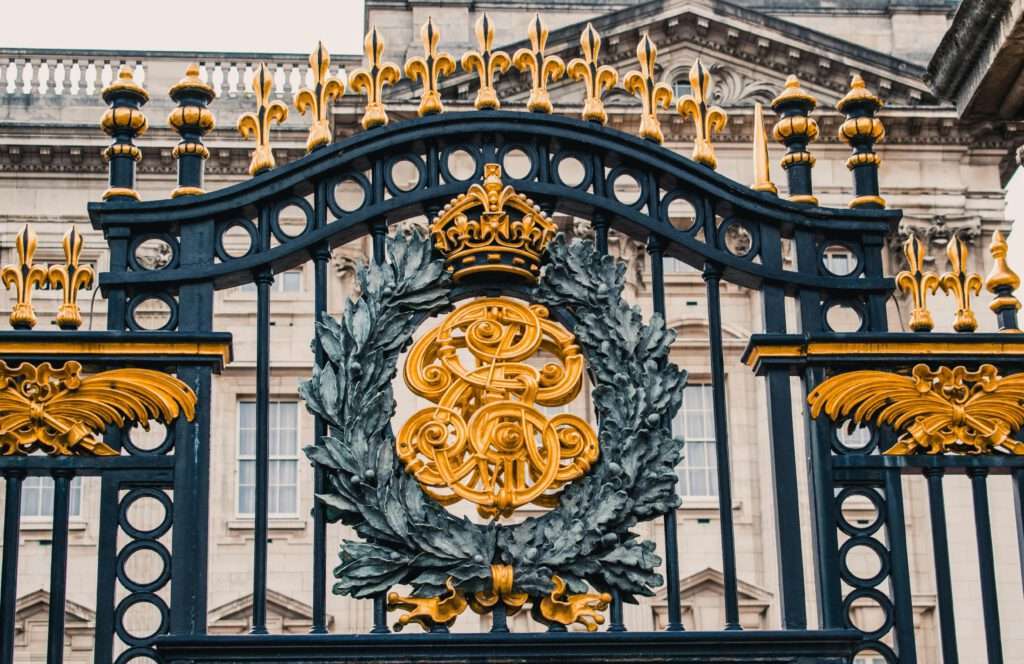EXCLUSIVE by GLOWTRAVEL: 10 reasons why do you know the surprising facts about England that might urge you to explore this fascinating country?
10. The Royal Family still controls the nation

Do not get me wrong, the Royal Family in England is an interesting side of its national identity and custom, even in today’s modern time. A country where the monarchy’s role is largely ceremonial within a constitutional framework. Yet the Royal Family remains a foundation of the nation’s character.
Sounds exciting, right? Well, it is, but there is more to this story. These royals perform essential duties, such as initiating Parliament and indicating the nation at significant events. Now, here’s where it gets interesting – the Royal Family’s influence extends beyond mere ceremony. They are deeply immersed in charitable work, supporting numerous causes and organizations. Imagine the continuity and solidity their existence provides, linking the past with the present. For tourists, this is an attracting look into England’s rich history and cultural heritage.
Iconic sites like Buckingham Palace, Windsor Castle, and the Tower of London are not just familiar sights. They are living symbols of the monarchy’s continuing legacy. So, next time you find yourself in England, engage yourself in the unique and engaging experience that the Royal Family offers. Trust me, you will not be disappointed.
9. The country’s Industrial Revolution transformed the world

Did you know that England’s Industrial Revolution deeply changed the world? Starting in the late 18th century, this period marked an immense shift from agrarian societies to industrialized economies.
Revolutions such as James Watt’s steam engine, computerized spinning by Richard Arkwright, and Henry Bessemer’s innovations in metallurgy revolutionized manufacturing and transportation. England changed into the world’s workshop, with factories booming and cities like Manchester and Birmingham expanding rapidly. The Industrial Revolution spurred unprecedented economic growth, creating jobs and boosting output. It also led to substantial social changes, including the rise of the working class and the advancement of urban centers.
For tourists, traveling England’s role in the Industrial Revolution offers a fascinating insight into the origins of modern industry. Museums and historical sites across the country provide a glance into this transformative era. Visiting these places allows us to realize how technological advancements made in England. Laid the base for the contemporary industrialized world, highlighting England’s key role in shaping global history.
8. Many popular sports were discovered in England

TENNIS! Have you ever wondered about the origins of some of the world’s most popular sports? Well, it’s not all about the games; it’s about where they begin. A country where football, or soccer as it’s known in some places, was organized in the 19th century, initiating a global trend with millions of fans. Sounds inspiring, right? But there’s more.
Cricket, another essential English sport, has its roots here and has grown into a favorite game, especially in the Commonwealth. And then there is sport, both union and league. Which originated in England and has since inspired enthusiastic followings and thrilling competitions worldwide. Even tennis, which developed from an older game played on grass courts, was formalized in England and is remembered each year at Wimbledon.
Now, Imagine exploring iconic spots like Wembley Stadium, Lord’s Cricket Ground, and the All-England Club. Where you can behold the legacy of these sports personally. England’s involvement to the world of sports is not just about games; it’s a witness to its significant cultural impact. So, next time you find yourself in England, engage in its rich sports history and feel the intense connection to these beloved games.
Trust me, for anyone passionate about athletic practices and history, it’s an experience you won’t want to miss.
7. England battled the shortest war in history

Did you know that England battled the shortest war in the past? The Anglo-Zanzibar War, battled on August 27, 1896, lasted only 38 minutes. This conflict occurred between the British Empire and the Sultanate of Zanzibar after the downfall of Sultan Hamoud bin Mohammed and the mounting of Sultan Khalid bin Barghash, who was opposed to British authority.
The British, armed with senior naval and artillery power, bombarded the sultan’s palace and military places.
Sultan’s forces were quickly stunned, leading to an instant and decisive British victory. The war’s concision underscores the complete military disparity of the time and remains a remarkable and almost strange episode in military history.
For history enthusiasts, this exceptional episode offers an interesting glimpse into the geopolitical dynamics of the late 19th century. Exploring this event helps us understand the immediate and decisive actions that illustrated imperial conflicts and the lasting impact of colonization. The Anglo-Zanzibar War remains an interesting and extraordinary chapter in military history, demonstrating the sometimes-unexpected swiftness of historical events.
6. The Southeast of England is mostly flat

Have you observed how flat the Southeast of England is? This region, involving areas like London, Kent, and Sussex, is known for its peaceful rolling hills and wide-open plains. Unlike the robust landscapes found in other parts of the UK, the Southeast claims a relatively even landscape that’s perfect for agriculture and travel.
For tourists, this flat landscape opens a world of adventure and freedom opportunities. Imagine taking charming walks through attractive countryside, cycling along well-kept paths, or easily visiting historic sites. The flat landscape also supports extensive farming, contributing to the area’s famous produce and lively markets.
The peaceful landscape of Southeast England offers a refreshing contrast to the stirring hills and mountains found in the North and West, presenting a rare and diverse experience of the country’s geography.
5. The National dish is an Indian food

Did you know about the country whose national dish is an Indian food? Yes, that is England. Chicken tikka masala, a rich and tasty blend of marinated chicken in a spiced tomato sauce, is famous as England’s favorite dish.
This meal originated from the blending of traditional Indian recipes with British cooking preferences, appearing in the UK during the 1960s when Indian chefs altered their dishes for local tastes. For tourists with a passion for exploring distinct food cultures, this fact uncovers an exciting aspect of England’s culinary scene.
Chicken tikka masala is not just a dish but an image of cultural incorporation and innovation, showcasing how global influences can shape and improve local cuisine. England offers a unique food experience that exhibits its rich history of cultural exchange. Making it a must-visit for food lovers eager to taste the world’s flavors.
4. The World Wide Web was developed in England

Did you know where the World Wide Web was discovered? It all begins in England. Back in1989, British scientist Tim Berners-Lee had an innovative idea while working at CERN, the European Organization for Research.
What started as a project to help scientists share information rapidly evolved into a groundbreaking invention that transformed communication and approach to knowledge on a global scale.
Berners-Lee developed the first server and web browser setting the phase for the modern Internet. For tech buffs and curious travelers alike, England’s key role in the creation of the World Wide Web offers a fascinating look into the origins of a technology that has deeply changed how we live, work, and connect.
3. French was the official language of England for over 300 years

Ever thought about the intriguing history of England’s official language? Well, it is not all Shakespeare and Chaucer. French was the authorized language of England for over 300 years. Sounds shocking, right?
Let us rewind the Norman Victory of 1066, when William the Conqueror and his Norman army seized over England. This victory made French the language of the English court, legal system, and high society. Imagine a time when the English empire and nobility used French for official matters, while the normal people continued speaking Old English.
The impact of this language dominance is still apparent today. Many English words related to law, government, and art are derived from French, indicating this historical influence. The terms like “court,” “judge,” and “parliament,” all of which have French origin. For history enthusiastic and travelers interested in cultural tradition, this fact point out the deep historical connections between England and France.
It shows how historical events shape language and values, offering a rich perspective on England’s advancing identity. So, next time you are exploring England, remember the Norman Conquest and its profound influence on the language and culture. Trust me, it’s an interesting chapter of history you won’t want to miss.
2. England is much close to Europe’s mainland

Have you ever thought about the geographical closeness of England to mainland Europe? England is detached from continental Europe by the English Channel, with the shortest gapbetween the two being just about 21 miles (34 kilometers) across the Canal of Dover. Sounds intriguing, right?
This proximity has been pivotal throughout history, facilitating trade, cultural exchange, and even military conflicts between England and its European neighbors. England’s closeness to mainland Europe offers a unique opportunity to delve into a rich tapestry of European history and culture. Imagine easily accessing neighboring countries and experiencing their diverse influences firsthand.
This geographical connection not only highlights England’s integral role in the broader European context but also enriches its own cultural and historical landscape. So, when you visit England and you’re not just exploring an island nation; you’re stepping into a gateway that bridges a wealth of European experiences.
1. Jumping a queue can be illegal by travel

Ever thought about the social norms around public displays of affection in England? Well, it’s not just about manners; it’s taken very seriously. a country where jumping a queue, known as can be considered a violation of etiquette and even implemented by law. Sounds strict, right? But there’s more to it.
British society places a high value on orderly queuing, seeing it as a mark off airness and respect. Imagine being at a public service or event, and queue-jumping is not just frowned upon but could result in fines or other penalties. For tourists, understanding this fact highlights the importance of civility and order in British social norms. It is a quirky aspect of English culture that emphasizes how deeply ingrained queue etiquette is in everyday life.
So, next time you’re in England, make sure to respect the queue – it’s more than just a line; it’s a reflection of the nation’s values. Trust me, embracing this cultural norm will make your visit smoother and more enjoyable.

